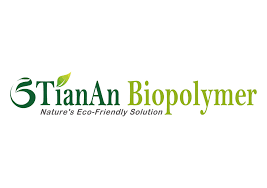
Tianan biologic is a biopolymer specialist, focused on the production and application development of polyhydroxy-butyrate-co-valerate (PHBV). The fermentation facilities are based in Beilun Port, Ningbo City in People’s Republic of China, with an annual capacity of 2000 metric tons.
Since establishment in 2000, we have been widely recognized as the largest producer of PHBV with an annual capacity of 2000 metric tons. In 2004, we became the first company in the world to achieve commercial production of PHBV using a water-based extraction technology, which we have since successfully patented globally.
To be a premier provider of biopolymers to the global marketplace, offering the highest quality products and continuing advancements to meet the challenges of today and the future.
To sustain this vision we will:
Show continuous improvement in meeting and exceeding the highest standards for caring for the health of our community, employees and continuing to minimize our environmental impact
Carry out all our business interactions in a professional, ethical and respectful manner for our employees and all partners with whom we interact.
Continuously strive to create sustainable values and growth with all our partners.
ENMAT Y1000P PHBV PELLETS
ENMAT Y3000P PHB PELLETS
ENMAT Y1000 PURE UNMODIFIED PHBV POWDER
We are a biopolymer specialist, focused on the production and application development of polyhydroxy-butyrate-co-valerate (PHBV). Our fermentation facilities are based in Beilun Port, Ningbo City in People’s Republic of China, with an annual capacity of 2000 metric tons.
Since establishment in 2000, we have been widely recognized as the largest producer of PHBV with an annual capacity of 2000 metric tons. In 2004, we became the first company in the world to achieve commercial production of PHBV using a water-based extraction technology, which we have since successfully patented globally.
Our products are bio-based and biodegradable, thus catering to the needs for today’s environmentally conscious companies looking for eco-friendly solutions.
Brand : ENMAT
Product Grades
ENMAT Y1000 PHBV Powder Thermoplastics
ENMAT Y1010 (With nucleating and stabilizing agent) PHBV Powder Thermoplastics
ENMAT Y1000P PHBV Pellets Thermoplastics
ENMAT Y3000P PHB Pellets Thermoplastics
What’s PHBV
Picture of bacteria with accumulated PHBV (white spots) inside cell body
PHBV, polyhydroxy-butyrate-co-valerate (CAS 80181-31-3), is a co-polymer that is part of the polydroxy alkanoates (PHA’s) family. The manufacturing of PHBV involves providing a microorganism a carbon feed source such as dextrose or glucose and a small amount of propionic acid along with suitable nutrients, such as nitrogen, phosphorus or oxygen which encourage growth and multiplication of the microorganisms. Once the number of microorganisms reaches the required point, the nutrients are reduced to create an imbalance, which puts the microorganisms under stress. The microorganism then begins to convert the extracellular carbon source through a series of enzymatic pathways to a reserve energy source in the form of polymeric inclusions within their cell. Under ideal conditions, typically, from 80% to 90% of the cell can comprise the polymeric form of the hydroxy esters conventionally referred to as PHBV. When the mass of the polymer within the cell reaches the maximum level, the process is terminated and the polymeric material is extracted from the cells.
PHBV can be consumed by microbes in soil or water at ambient temperature, breaking down into carbon dioxide and water, hence ideally suited for home composting or in regions where industrial composting infrastructure is lacking. PHBV can also be digested anaerobically, producing methane which can be recovered and used as an energy source.
The ENMAT Difference
There are a few key factors that distinguish Tianan’s ENMAT as a preferred source of bioplastics when compared to other PHA’s:
Non-genetically modified organism : natural strain, Ralstonia Eutropha, is used exclusively
Non-genetically modified feedstock: dextrose derived from corn or cassava grown in China
Exclusively patented extraction technology: water-based, no solvent or enzyme used
Smaller carbon footprint: lower energy consumption due to the use of natural strain allowing for fermentation at low temperature
Applications :
Thermoplastics: injection molding, extrusion, thermoforming, blown films
Fiber & Nonwovens
Denitrification: water treatment